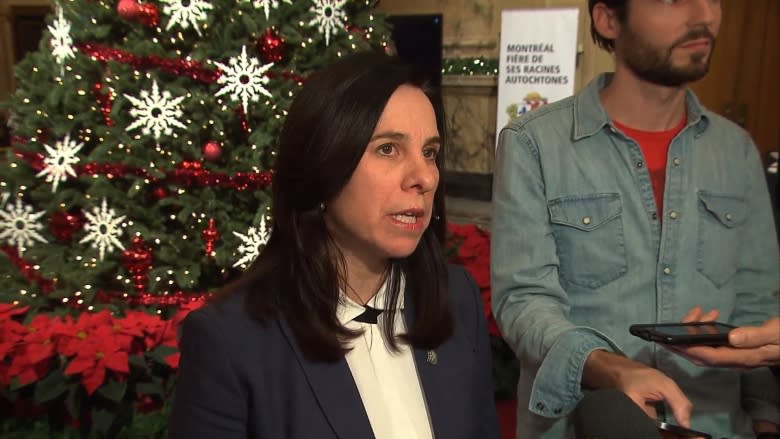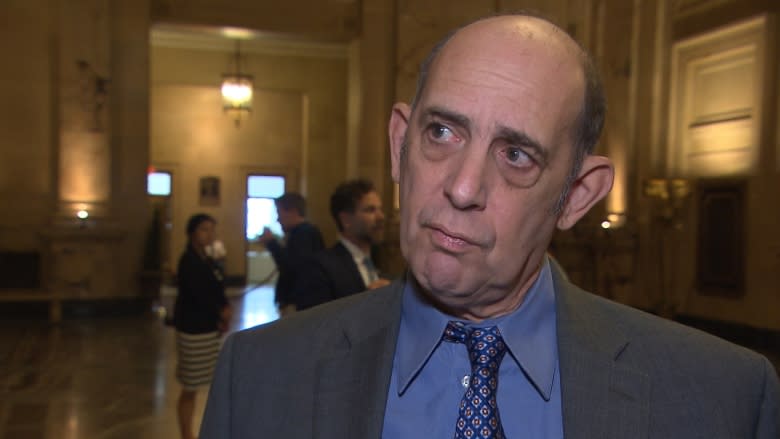Montreal wants to phase out sugary drinks in city buildings
Montreal Mayor Valérie Plante is promising to phase out sugary drinks in city buildings, such as at arenas and pools.
Going forward, as contracts are renegotiated with vendors, sugary drinks will be prohibited.
"As a city, we support the physical activity via our arenas, stadiums and parks, but I also think it's important to include food and drinks in that," Plante said Monday.
"The city always wanted to move towards offering healthier food choices," she said, adding that sugary drinks are part of the challenge. "We would like to offer other things other than drinks that are high in calories and sugar."
The announcement came after a pair of city councillors, Marvin Rotrand and Luis Miranda, tabled a motion calling on the city to pressure the federal government to tax sugary drinks.
"It's a request to Ottawa to impose an excise tax so that the producers of sugary drinks would pay it when they create the drinks," Rotrand told CBC's Daybreak.
Rotrand first tried to introduce the notion of an extra tax on sugary drinks in 2014 — but at the municipal level, as a regional sales tax.
Now, he said, research shows the best way to affect the rate of consumption is for the tax to be nationwide.
"France, Mexico, Hungary, Ireland ... have all adopted taxes," Rotrand said. "The consensus of the health-care professionals is this is the most effective way."
"The worst consumers are young people between the ages of nine and 18. A tax of this type would really impact that clientele and segue them over to healthier habits and better drinks."
The World Health Organization recommended in a report that the tax on sugar-sweetened beverages — such as soda, fruit drinks, sports drinks, sweetened iced tea, energy and vitamin water drinks — should be at least 20 per cent.
According to the report, obesity more than doubled worldwide between 1980 and 2014, with 11 per cent of men and 15 per cent of women classified as obese — more than 500 million people.
The WHO said an extra tax similar to the kind imposed on tobacco could decrease consumption and, in turn, reduce the rate of Type 2 diabetes and other obesity-related diseases.
In 2016, the federal government did analyze the pros and cons of a possible sugar tax. But the 2016-2017 budget made no mention of imposing such a tax on sugary or fatty foods and beverages.



